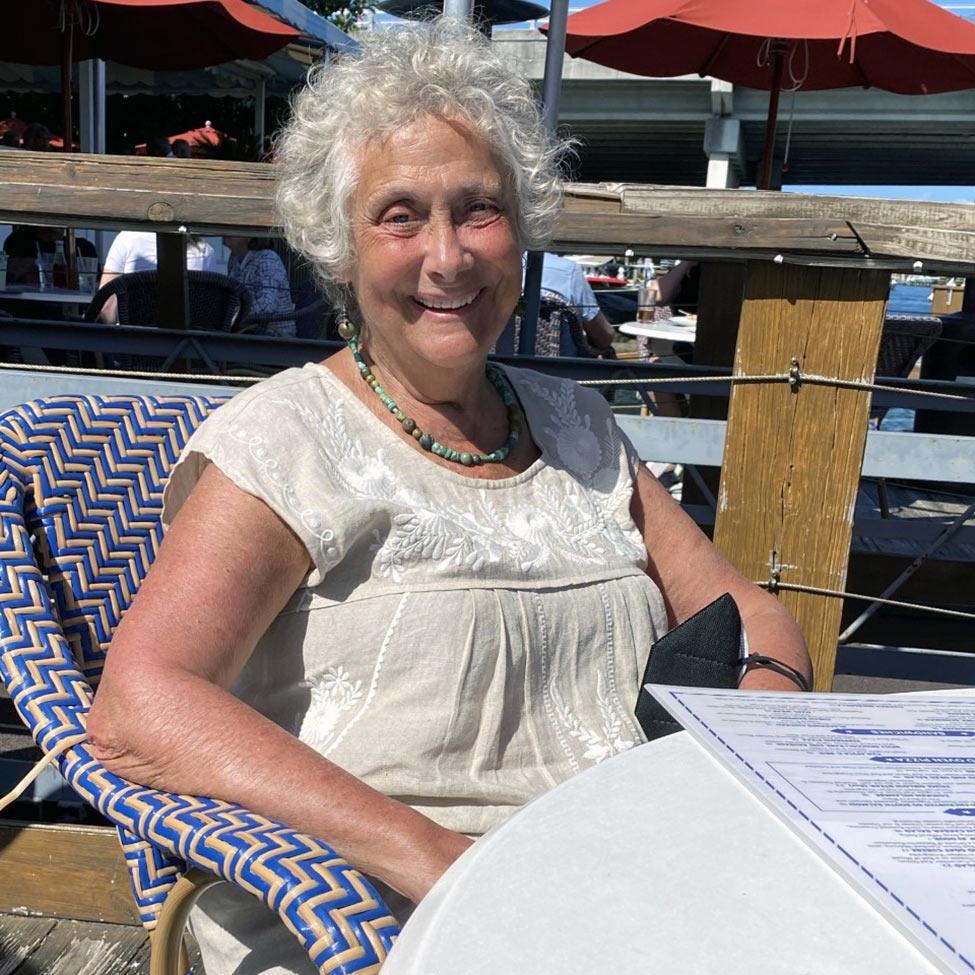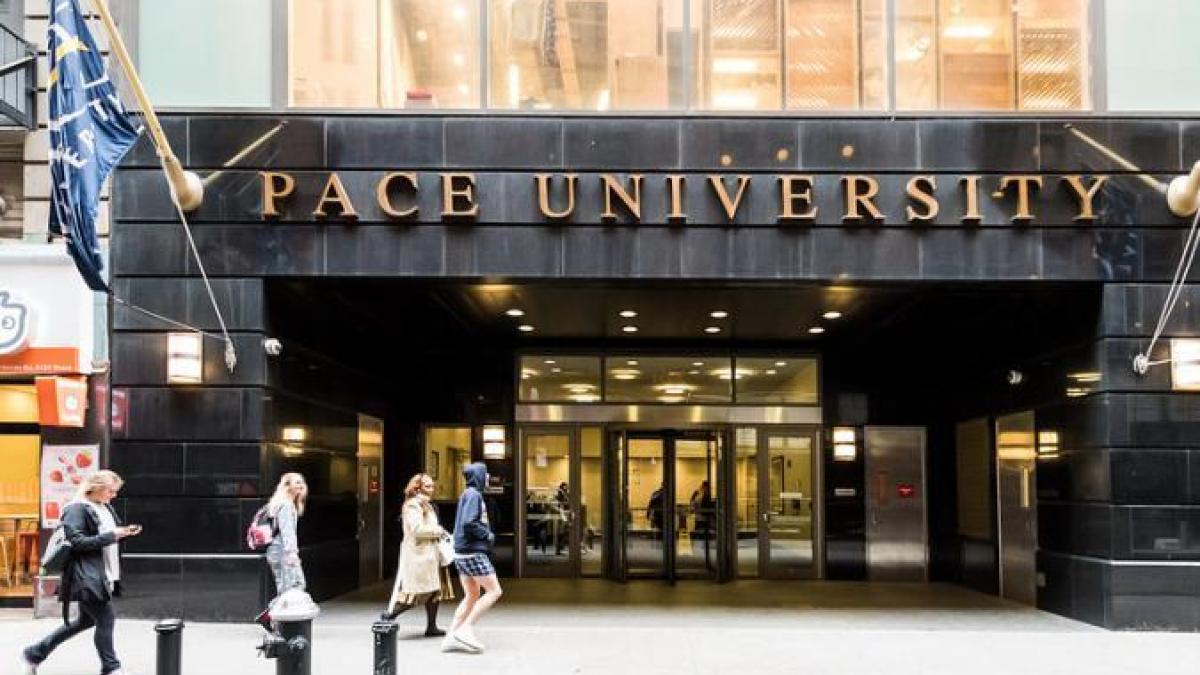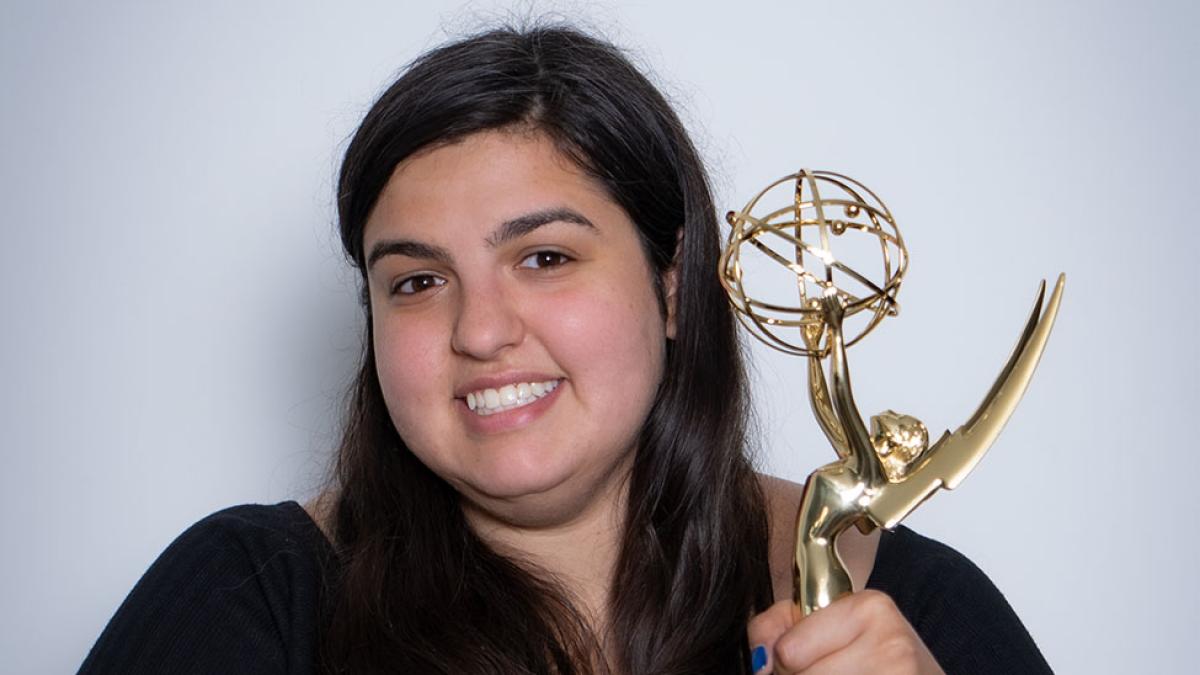
As Asian societies age, ‘retirement’ just means more work
In China, “people get angry,” said Sheying Chen, a professor of public administration and social policy at Pace University in New York. “They say, ‘I worked full time and made it to retirement age; you want me to work more?’”
Does Facebook make you dumber? Study shows users of social networking site get lower grades
Pace University professor Cathy Dwyer, Ph.D., says that even if students weren't on Facebook, they'd find something else to spend their time on. And, she says, Facebook certainly has a positive side, especially in this economy. "Facebook offers students a way to reconnect with their professors and classmates if they get laid off," she says. "It can help with the job search."
High School Transgender Bathroom Ban Upheld
Haub Law Professor Noa Ben Asher discusses with Bloomberg Law the 11th Circuit ruling that a Florida school board didn’t violate a transgender high school student’s equal protection rights when it banned him from using the boys' bathrooms.
Taking a Look at Westchester's Economic Forecast in 2023
Pace University is adding new undergraduate and graduate programs in such areas as information technology, healthcare, business, and law that respond to market demands, and the university is providing more flexibility in how coursework is delivered, according to Pace president Marvin Krislov. “Across our campuses, and at Pleasantville in particular, we are making significant investments in our science labs and our healthcare simulation labs … to help address a critical need in the region for more clinical lab technicians and nurses,” Krislov says. Also in 2023, Pace expects to complete its Pace University Cyber Range, a controlled, interactive technology environment for cybersecurity education. In the fall, the university will open a new, 26-story residence hall and academic building in New York City.
The Casting Director: Amy (Applebaum) Hutchings '70
Casting director and alumna Amy Hutchings’s degree in anthropology has informed her long-spanning career and belief in unity.

Casting director and alumna Amy Hutchings’s degree in anthropology has informed her long-spanning career and belief in unity.

You have had a very successful career spanning more than 50 years, from production management to, more recently, casting for feature films such as The Dead Don’t Die (2019), The Secret Diary of an Exchange Student (2021), and The Hating Game (2021).
How did you get started in your career? What has your journey to the present been like?
After college, I was planning to work as an elementary school teacher, but there was a freeze on city jobs. A brand new TV show was looking for a script typist with a college degree, and I was hired. That show was Sesame Street, and I was privileged to grow with it during its first ten years in production and work with the likes of Jim Henson and the Muppets.
When my husband's photography business was expanding, I left the show and began producing photography shoots, and, together, we published over 100,000 photos, and wrote and photographed over 20 nonfiction books for young children, primarily for educational publishers. The images we created represented a full “Rainbow Connection” of humanity, including those differently abled. I then briefly returned to TV as associate director on Nickelodeon’s Eureeka's Castle, a Muppet-inspired show for preschoolers focused on character development.
About ten years ago, I began casting talent for feature films. I’ve worked on upwards of 60 films during this time, and, at age 75, have no intention of slowing down. Now, the favorite aspect of my work is mentoring young actors and aspiring film crew members. Otherwise, what is a lifetime of experience worth?
You received a Bachelor of Arts in Anthropology from Pace University. What attracted you to pursue this course of study?
When I was at Pace, there was a special program called the John Walsh Seminar, aka Project X. It was a remarkable intellectual exploration in everything from ancient civilizations and Russian literature to Chinese history (with a true sinologist) and physics (with a scientist involved in bouncing the first laser beam off the moon). From this extensive pool of topics, anthropology and the evolution of the human being just completely engaged me, and that engagement has never left.
Why did you choose to enroll at Pace University? Were there certain faculty who were instrumental in your personal and/or professional journey?
I enrolled at Pace as a transfer student from SUNY Cortland and it turned out to be one of the best decisions of my life. I had been on a two-year hiatus, living and working in Manhattan, and the New York City campus was convenient. Also, my brother’s friend, David Beisel, was an inspiring history teacher at Pace and encouraged me to apply. Once there, I caught a French literature ‘fever,’ spread by a remarkable professor. After a semester or two, she told me about the John Walsh Seminar. I interviewed with the director, Joe Agnelli, and so began the most intense, intellectually stimulating, and expansive aspect of my education that has never waned.
“The films I choose to work on are all uplifting, illuminating stories that illustrate the arc of the hero's journey and humanity’s ability to continue to grow and change.”
One of your earliest projects as a casting director was for the comedy-drama Liberal Arts (2012), which begs the question: how has your time as a Dyson student influenced the person you are today, and what are your thoughts on a liberal arts education?
My years at Pace provided the broad perspective that has allowed me to become a cultural creative. I am an optimist who believes in the essential goodness of people, and the common thread of my life's work has been an outlook of unity among all of humankind. My degree in anthropology, work on Sesame Street, casting thousands of multi-ethnic and differently abled models for educational publishers, and writing and photographing nonfiction books, were all done with the full spectrum of humanity in mind. Also, the films I choose to work on are all uplifting, illuminating stories that illustrate the arc of the hero's journey and humanity’s ability to continue to grow and change.
Indeed, I am a true believer in a liberal arts education. More than ever, we need to examine our history and learn from the great thinkers, artists, and scientists. Thank you, Pace, for introducing me to them.
What challenges, if any, have you faced in life and how did you overcome them?
All of my careers have been “invented.” They have kept me in a state of constant learning and change, which, for me, is essential. Life is challenging and I was beyond fortunate to meet my husband at Pace. We’ve been together for 55 years and having a teammate who always has your back is a true gift. We always worked and raised our three sons together and he was always a full partner through “sickness and health.” Having a partner you trust when you are vulnerable is a precious commodity.
What is next for you?
I recently finished casting for a film with Uma Thurman and Samuel L. Jackson and another with Josh Radnor. These are in addition to my son Peter’s features, Which Brings Me to You and The Hating Game, both starring Lucy Hale. Watching The Hating Game provides me great satisfaction, having collaborated with a cast and crew decades younger than me. I’m currently working on a film recounting the events at Kent State, when four students were killed by National Guardsmen during an anti-war rally. This happened soon after I graduated from Pace and it's an important story to retell.
I’m also studying to become a wellbeing coach through the Anthropedia Foundation, which works with many different elements of society to reach their needs. The courses I’ve taken are so similar to the those I took at Pace, and have helped me to understand how the mind, body, and spirit are interconnected. My favorite quote is "I have chosen to be happy because it is good for my health" by Voltaire.
What advice would you give to our students, as they navigate their college life?
My only advice is to be open to life’s possibilities. It is important to have the courage to explore the paths not taken— remarkable surprises just might await you. I encourage the young people in my life to travel and see how others live. Maintain an outlook of unity with mankind and lead with kindness. We’re all in this together.
More Alumni Stories
Emmy Award-winning producer and third-generation alumna Rachel Skopp-Cardillo’s success is deeply rooted at Pace.
Marketing and publishing executive-turned author Ebony Ladelle writes about the universal language of love.
Bronx native and senior human resources executive Peter Fragale '88, Criminal Justice, has provided critical workforce support during the COVID-19 pandemic.
Prominent Legal Community Members Join Law School Board
Three new members have joined The Elisabeth Haub School of Law at Pace University Board of Visitors. They include Westchester County District Attorney Miriam E. “Mimi” Rocah and two Haub Law alumni, Caesar Lopez ’12, and Felipe Paez ’96.
These Are the Best Universities in New York City for International Students
Located in the heart of downtown New York, Pace University is a private institution with a reputation that precedes itself.
Recently, it was ranked the top private four-year college in the nation for upward economic mobility — how’s that for return on investment?
At Pace, what you learn is intertwined with real-world experiences including internships, research, clinicals, civic engagement, and study abroad opportunities.

Xi’s Challenge: Sustaining Leadership
Last year was a challenging one for the Chinese Communist Party’s (CCP) top leadership.
The party’s 20th National Congress in October last year marked the beginning of Chinese President Xi Jinping’s (習近平) third term, making him the nation’s most powerful ruler since Mao Zedong (毛澤東), with his loyalists dominating the new politburo, the CCP’s leadership circle.
5 Top Perspectives From 2022
We’ve rounded up five links to our best-read opinion pieces:
I’m a college president. Teaching a 101-level course reminded me how important compassion is right now.
By Marvin Krislov, February 22, 2022
Kindness is key in helping students succeed during the pandemic, Pace University’s president writes. Faculty and staff need compassion, too.
Prolonged Grief Disorder: 5-15% of Bereaved People Experience Chronic Mourning. What Does That Mean and How Might it Impact Your Health?
Every human being will experience grief at some point in their lives — it’s a fundamental human experience. “I think it’s important to underscore that people are equipped to grieve, and for the most part people do it OK,” says Anthony Mancini, a psychological researcher at Pace University in Pleasantville, New York.


